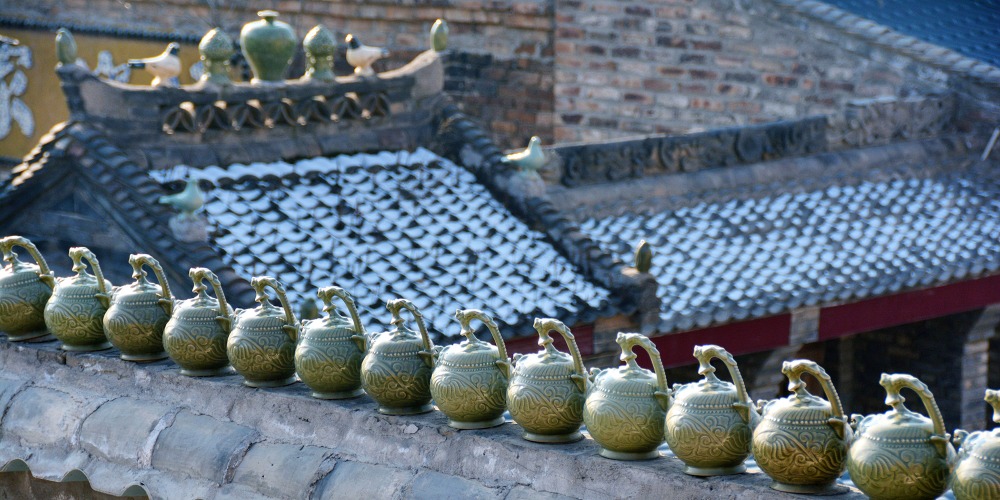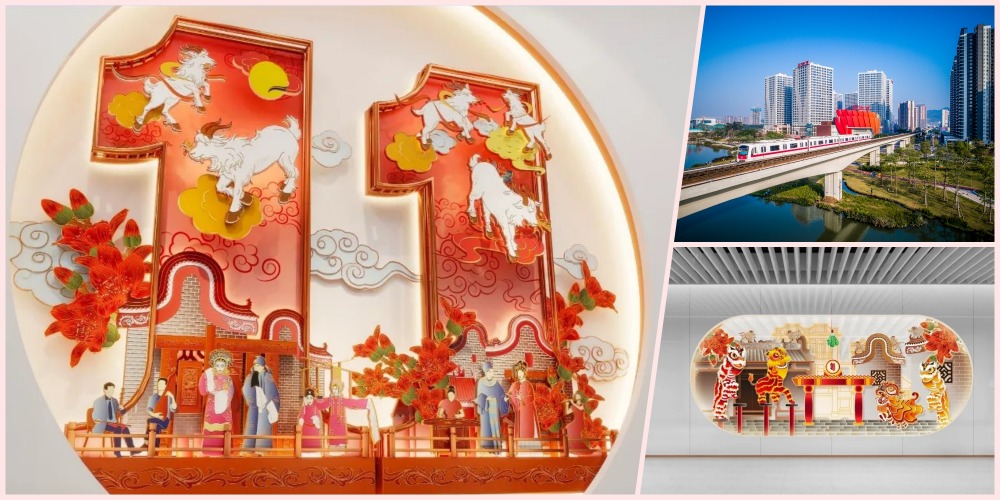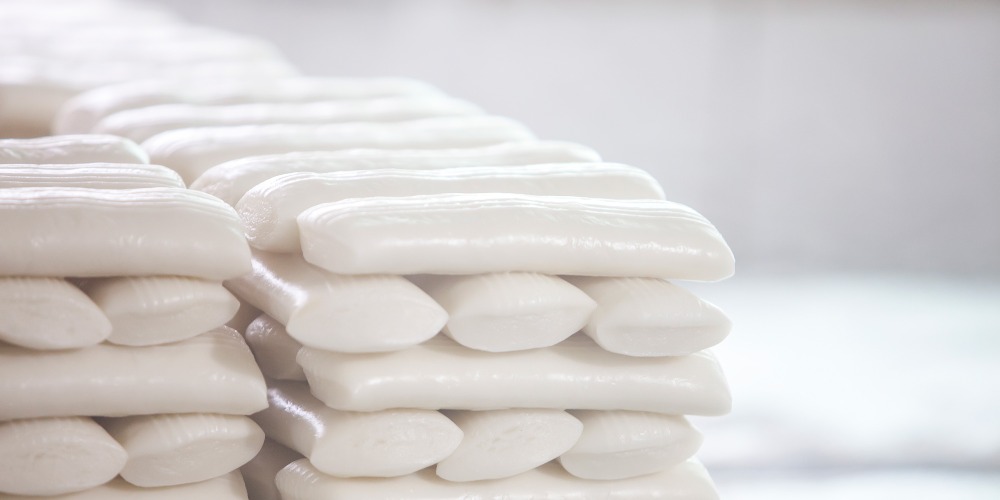Published : 2023-11-19
Walls built with porcelain jars, roads paved with porcelain shards, a 1,400-year old continuous kiln fire… This is the "Porcelain Capital of the North of the Wei River", the ancient town of Chenlu, nestled amidst the hills of Shaanxi.
It is one of the six major kiln systems of the Song Dynasty and a representative of Yaozhou Kiln.
How did this town, dubbed the "living fossil" of ancient pottery, managed to conserve its tradition while embracing modernity and development?
Chenlu Ancient Town: A living fossil of ancient pottery
Yaozhou porcelain has a long history and is a representative of northern China celadon. It used to be a hot-selling item on the ancient Silk Road.
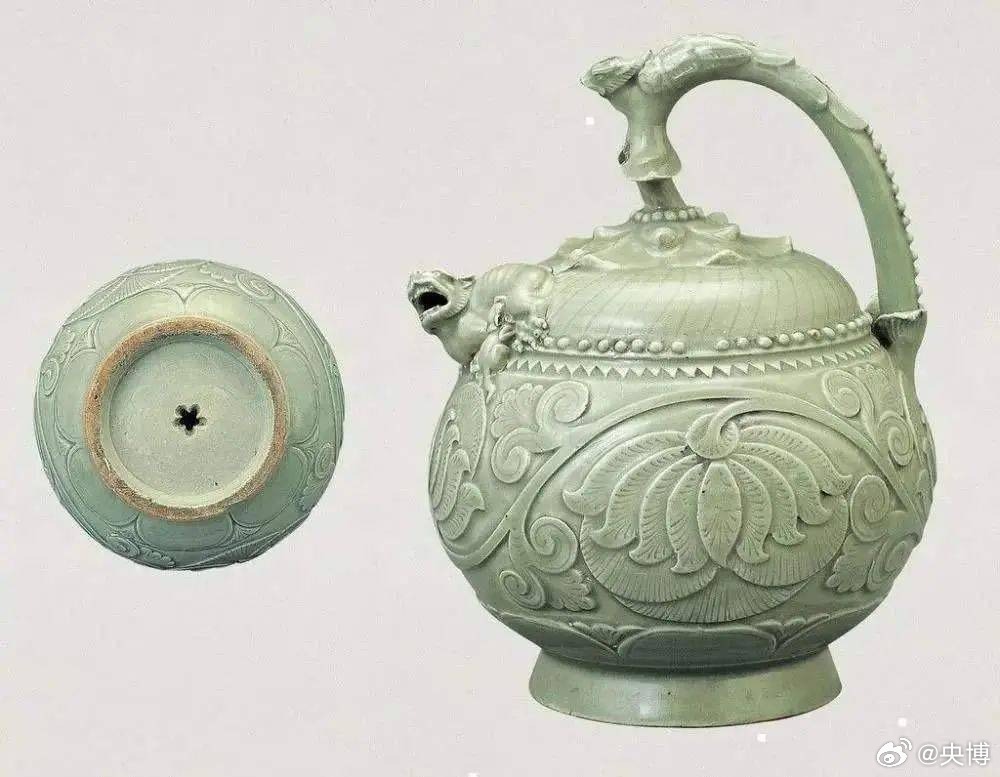
Yaozhou, which is located in the present day area of Tongchuan City, Shaanxi Province. The ancient town of Chenlu, built against a mountain, is the largest porcelain kiln factory in Shaanxi, or even in the northwest region, and is also the only existing and never-ceased burning Yaozhou Porcelain base in China.
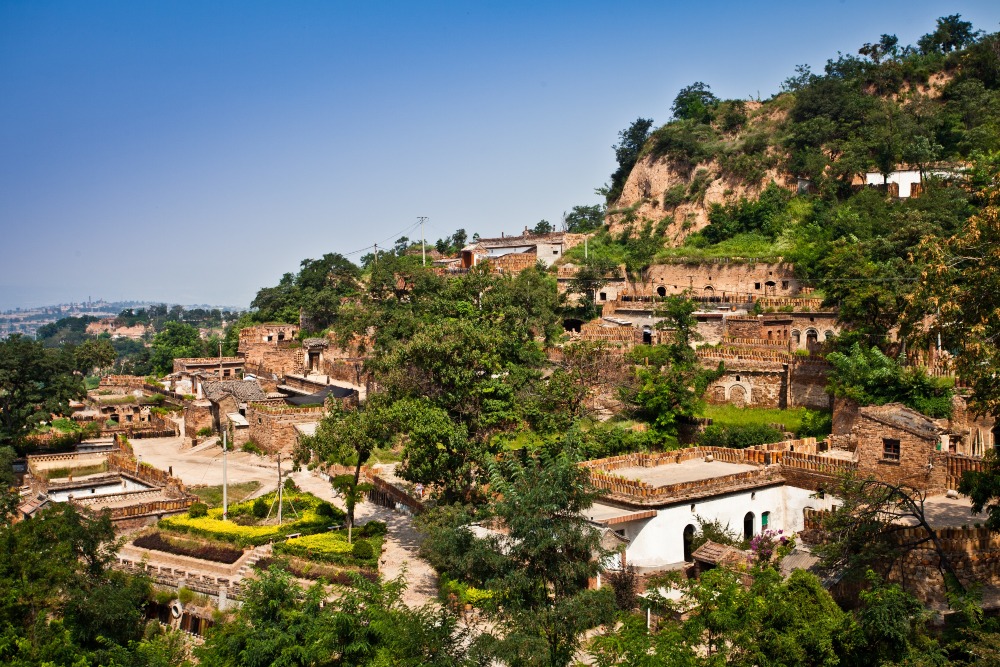
The history of ceramic firing here spans 1,400 years. It has preserved the most primitive firing techniques, including clay making, billet making, drying, hand-painting, glazing and firing.
During its peak period, the ancient town was replete with "furnaces, producing a bright glow throughout the night", creating one of the "Eight Sceneries of Tongguan", the "Never Night Lu Mountain".
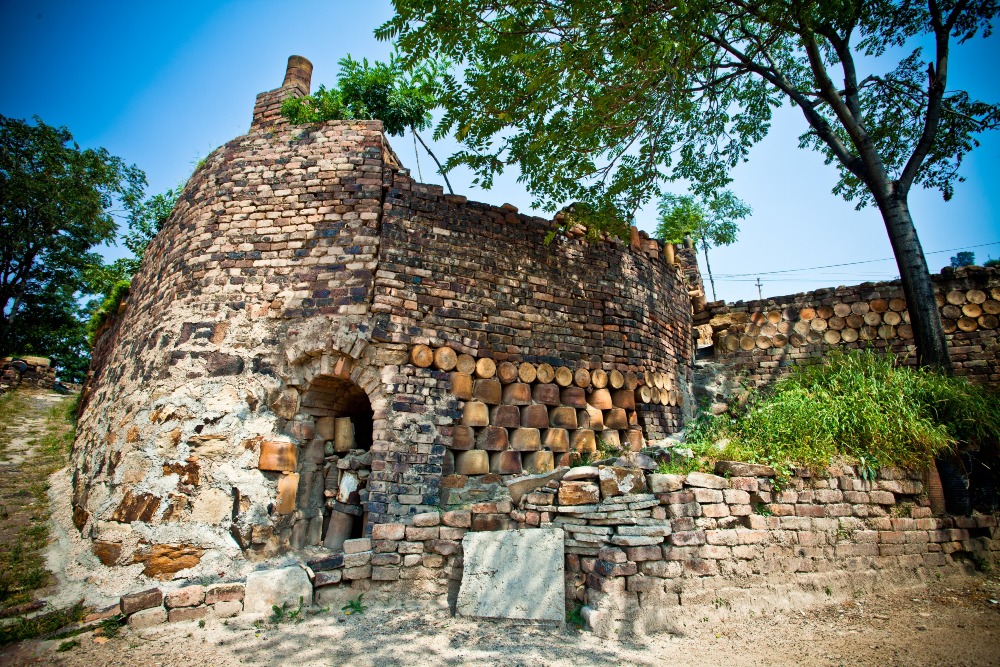
The locality currently preserves over 30 ceramic firing sites from different periods, such as the Jin, Yuan, Ming, and Qing dynasties, more than 40 kiln furnaces, and over 15,000 specimens of artefacts have been unearthed. Therefore, its revered as the "Living Fossil of Ancient Oriental Porcelain".
Chenlu Ancient Town's unique scenery of "ceramic jar walls"
In ancient times, it was very difficult to successfully make ceramics. People in Chenlu built walls with discarded ceramic jars, or smashed them to decorate roads. The unique scenery of Chenlu is formed by "jars upon jars making walls, and ceramic shards paving roads".

In 2006, the Chenlu Ancient Kiln site was listed as a national key cultural relics protection unit. In the same year, the ceramic firing craft of Yaozhou Kiln was listed as a national intangible cultural heritage.
Chenlu Ancient Town was named a famous historical and cultural town of China in 2008, and was named "Hometown of Chinese Folk Culture and Art" in 2011.
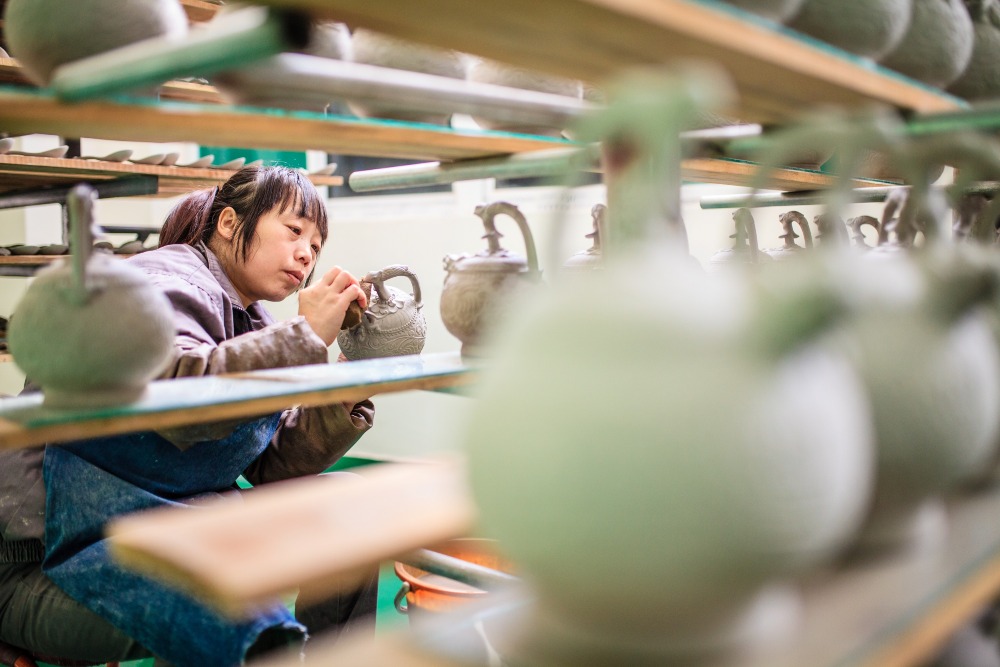
In recent years, Chenlu Town has continuously improved its infrastructure, including increased greening, road reconstruction, establishment of a tourist centre, as well as the integration of culture and technology to exhibit ceramic culture through digital technology, attracting hundreds of thousands of tourists every year.
Read more: How did Jingdezhen the millennium porcelain capital "resurrect"?
